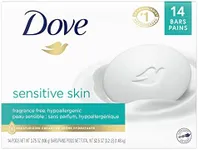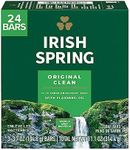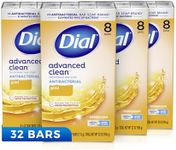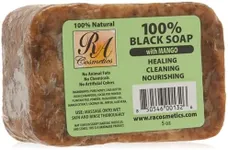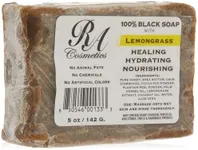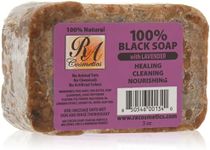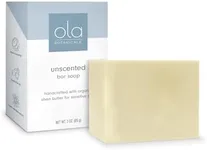Buying Guide for the Best Antibacterial Bath Soap
Choosing the right antibacterial bath soap can be a bit overwhelming with so many options available. The key is to understand what you need from the soap and how different specifications can meet those needs. Antibacterial soaps are designed to kill or inhibit bacteria, making them a popular choice for maintaining hygiene. Here are some key specifications to consider when selecting an antibacterial bath soap.Active IngredientsActive ingredients in antibacterial soaps are the components that kill or inhibit bacteria. Common active ingredients include triclosan and triclocarban. These ingredients are important because they determine the soap's effectiveness against bacteria. If you have sensitive skin, you might want to look for soaps with milder active ingredients or natural antibacterial agents like tea tree oil. For general use, a soap with standard antibacterial agents will suffice, but for specific skin conditions, consult a dermatologist.
Skin Type CompatibilityDifferent soaps are formulated for different skin types, such as dry, oily, sensitive, or normal skin. This specification is crucial because using a soap that is not compatible with your skin type can cause irritation or dryness. For dry skin, look for soaps with moisturizing ingredients like glycerin or aloe vera. For oily skin, a soap with oil-control properties might be more suitable. If you have sensitive skin, hypoallergenic and fragrance-free options are best.
FragranceFragrance in antibacterial soaps can make your bathing experience more pleasant, but it can also cause allergic reactions or skin irritation in some people. If you enjoy scented products, choose a soap with a fragrance you like, but if you have sensitive skin or allergies, opt for fragrance-free or naturally scented options. The right choice depends on your personal preference and skin sensitivity.
Moisturizing PropertiesMoisturizing properties in antibacterial soaps help to keep your skin hydrated and prevent it from drying out. This is particularly important if you have dry or sensitive skin. Look for soaps that contain ingredients like shea butter, coconut oil, or glycerin. If your skin is naturally oily, you might not need additional moisturizing properties, but for most people, a soap with some moisturizing benefits is a good choice.
pH LevelThe pH level of a soap indicates how acidic or alkaline it is. A soap with a pH level close to that of your skin (around 5.5) is less likely to cause irritation and is better for maintaining the skin's natural barrier. If you have sensitive skin, look for soaps labeled as pH-balanced. For most people, a soap with a pH level between 5 and 7 is suitable.
PackagingPackaging might seem like a minor detail, but it can affect the soap's usability and environmental impact. Bar soaps usually come with minimal packaging, which is more eco-friendly, while liquid soaps often come in plastic bottles. If you are environmentally conscious, you might prefer bar soaps or liquid soaps in recyclable packaging. Additionally, consider the convenience of use; bar soaps are straightforward, while liquid soaps with pumps can be more hygienic and easier to use.

